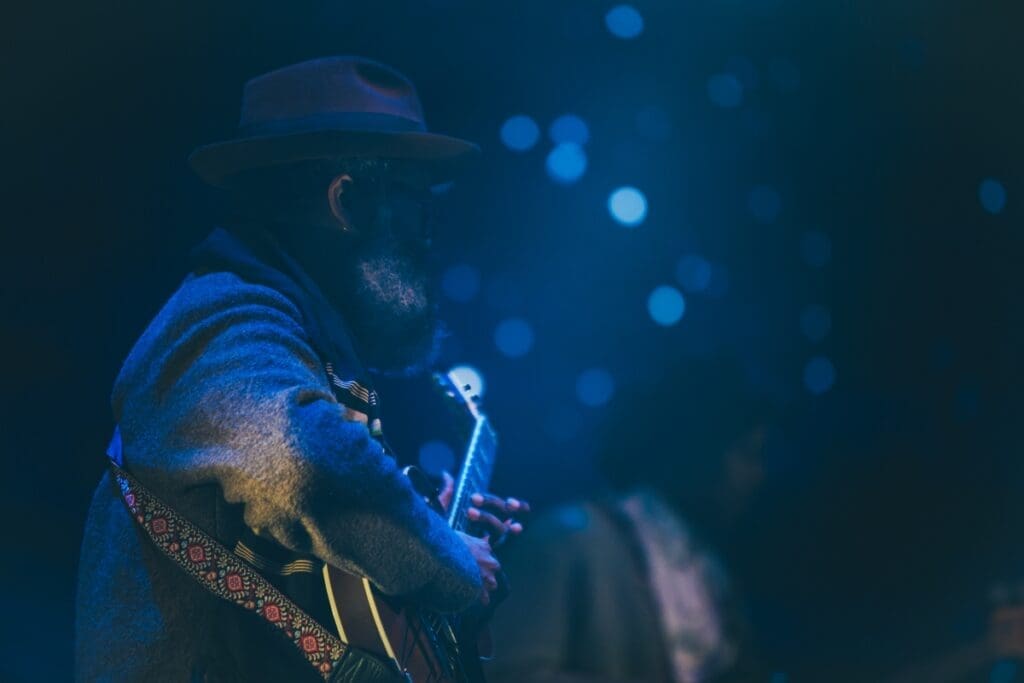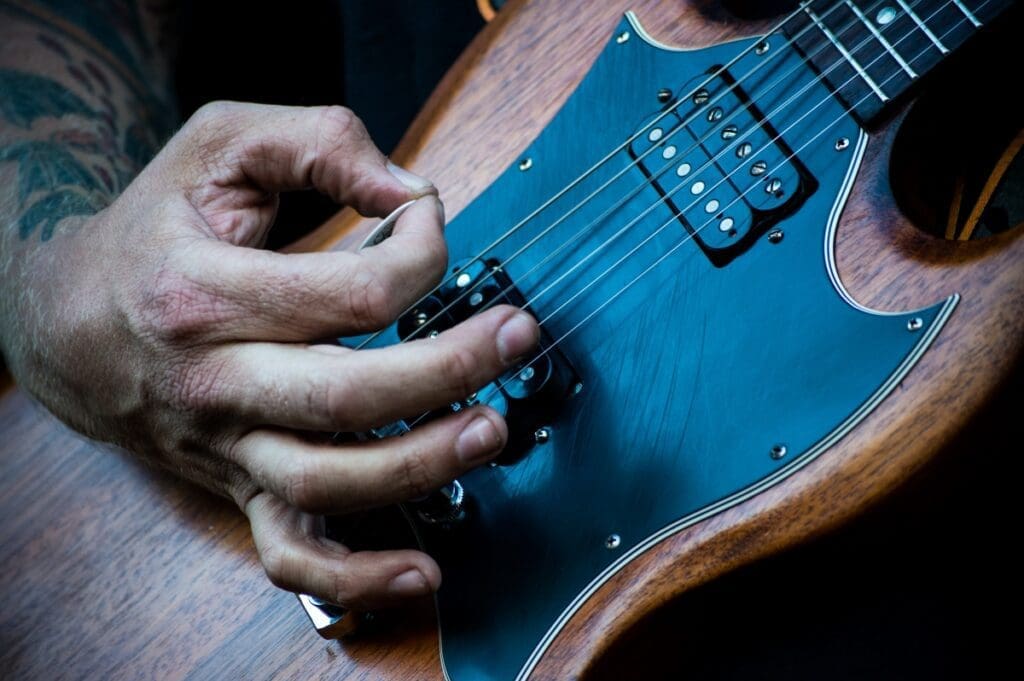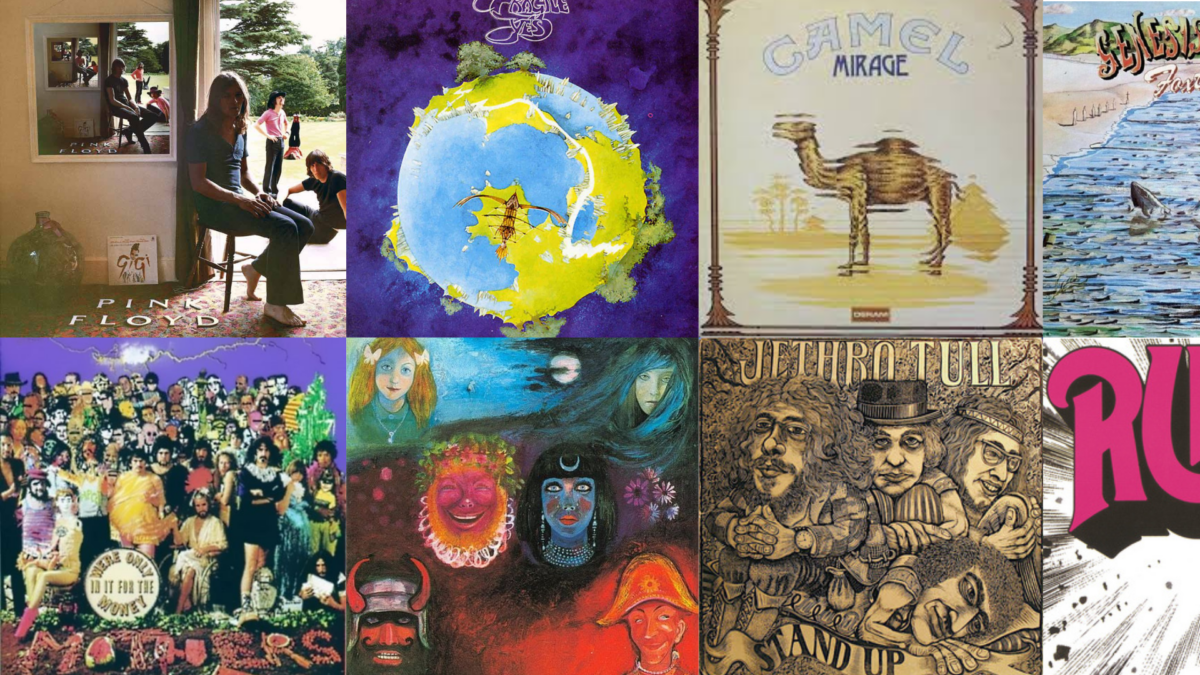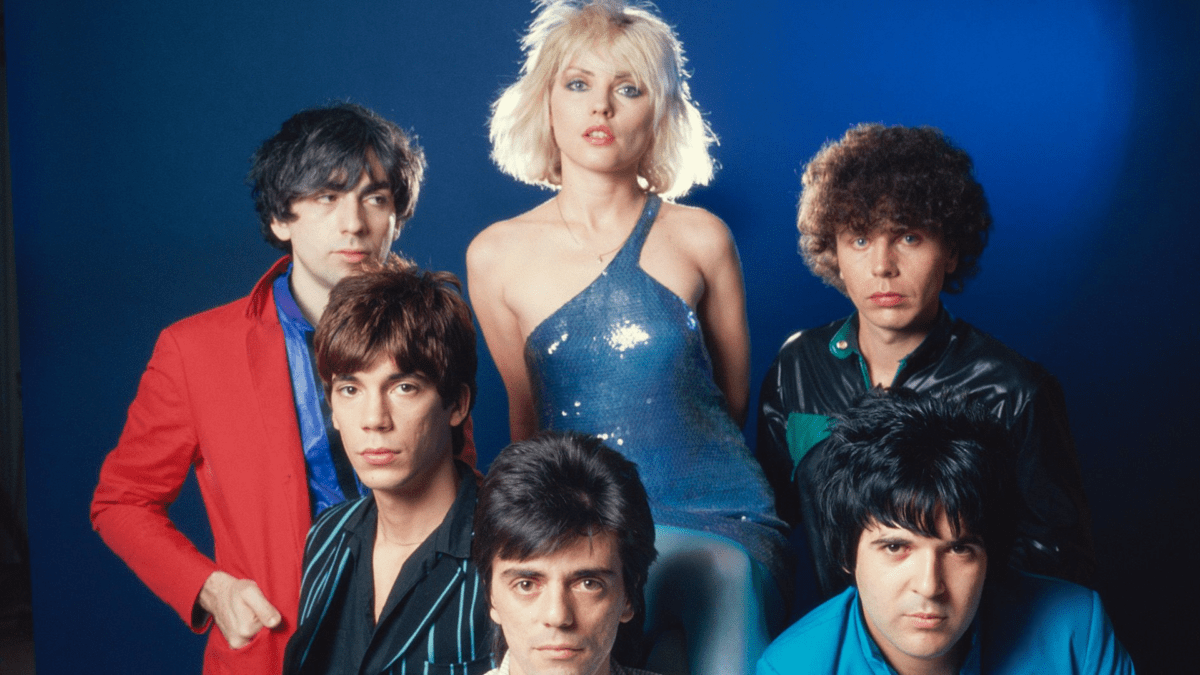
The world of music is filled with diverse genres that cater to every taste and preference. Yet, amongst this vast array of sounds, few genres have the power and moody appeal of dark blues music. A sub-genre of blues music, dark blues resonates with us profoundly, evoking a sense of depth and passion that is hard to find elsewhere. It’s a genre steeped in history, emotion, and raw talent, and its influence on the music industry is undeniable.
In this article, we’ll dive into the mesmerising world of dark blues music. We’ll explore its defining characteristics, influential artists, must-listen albums, and its impact on the larger music industry. So, whether you’re a seasoned listener or new to the genre, let’s explore the magic of dark blues, a genre that truly stands out in the vast musical landscape.
What Defines Dark Blues Music?

Dark blues is a style of music that delves into the depths of human emotion and experience, transporting listeners into a world filled with soulful melodies and poignant lyrics. But what exactly defines dark blues music? What sets this genre apart from others?
At its core, dark blues music is characterised by its emotional depth and intensity. It’s a genre that’s not afraid to explore darker themes of pain, struggle, and heartbreak, presenting them in a raw and authentic way. Introspective and melancholic lyrics often feature personal narratives that resonate deeply with listeners. This emotional honesty is one of the defining features of dark blues, creating a connection between the artist and the listener that’s deeply personal and immersive.
Furthermore, dark blues music is defined by its distinct sound. The genre is deeply rooted in the traditional blues sound, emphasising the use of the twelve-bar blues progression and typical blues scales. However, dark blues takes these conventional elements and adds a darker, more intense twist, often with slower tempos, heavier instrumentation, and more complex musical arrangements.
While traditional blues often relies on a simple, stripped-back sound, dark blues music tends to incorporate a broader range of instruments to create a richer, more layered sound. This can include electric guitars, keyboards, and even orchestral elements, all contributing to the genre’s distinctive, immersive sound.
Finally, the vocal style in dark blues music is another defining characteristic. Dark blues artists often employ a soulful, emotive vocal delivery that complements the genre’s intense, emotional themes. This vocal style, with its raw, gritty quality, is a crucial part of the dark blues sound, adding to its overall depth and intensity.
Dark Blues Artists: The Masters of the Genre
Many talented artists have graced the dark blues genre, each contributing their own unique style and interpretation. These artists have defined the genre and left an indelible mark on the broader music industry.
One of the most iconic dark blues artists is B.B. King. Known as the “King of the Blues”, B.B. King’s music is famous for its emotional intensity and musical sophistication. His soulful voice and expressive guitar playing have made him a legend in the genre, influencing countless artists in the process.
Another important figure is Muddy Waters. His raw, gritty sound and powerful emotion was a significant influence. His songs, often filled with themes of heartbreak and despair, are quintessential examples of the genre’s power.
Contemporary dark blues artists like Gary Clark Jr. and Joe Bonamassa have also made important contributions to the genre. Their music blends traditional blues elements with rock influences, creating a fresh, modern take on dark blues music. Their innovative approach has helped to keep the genre relevant and exciting, introducing it to a new generation of listeners.
Must-Listen Albums
The vast dark blues discography is filled with albums that showcase the genre’s depth, diversity, and sheer musical brilliance. These must-listen dark blues albums define the genre and serve as excellent starting points for those new to the genre.
B.B. King’s “Live at the Regal” is a classic dark blues album that perfectly showcases the genre. Recorded live at the Regal Theater in Chicago, this album captures B.B. King at his best, with his soulful voice and expressive guitar playing taking centre stage.
Muddy Waters’ “Hard Again” is another essential dark blues album. The album is a testament to Waters’ immense talent and influence, featuring a collection of songs that are as raw and gritty as they are emotionally powerful.
Gary Clark Jr.’s “Blak and Blu” is a must-listen for a more contemporary take on dark blues. This album blends traditional blues elements with rock influences, showcasing Clark’s innovative approach to the genre.
Understanding the Powerful Appeal of Dark Blues Music
The appeal of dark blues music lies in its ability to connect on an emotional level. The genre’s introspective lyrics and expressive performances resonate with listeners, creating a deeply personal and immersive musical experience.
The emotional depth and honesty of dark blues are part of what makes it so appealing. By exploring themes of heartbreak, despair, and longing, the genre allows listeners to connect with their own emotions and experiences. This connection is a powerful draw, making dark blues not just a form of entertainment but a means of self-expression and emotional catharsis.
The genre’s unique sound is another aspect of its appeal. Its rich, layered soundscapes captivate listeners, transporting them into a world of soulful melodies and poignant lyrics. This immersive quality makes listening to dark blues music a genuinely engaging and rewarding experience.
The Impact of Dark Blues Music on the Music Industry

The genre has had a profound impact on the music industry. Its influence can be seen in various styles, from rock and pop to hip-hop and beyond.
Dark blues has played a significant role in shaping the sound of modern music. Its distinctive musical elements, such as the twelve-bar blues progression and the blues scale, have been adopted and adapted by numerous other genres. This has resulted in a broad range of music that shares a common thread with the genre, contributing to its enduring legacy.
The genre’s emotional depth and honesty have also influenced the lyrical content of many other genres. The raw, personal narratives in dark blues songs have inspired countless artists to incorporate similar themes into their music. As a result, modern music often places a greater emphasis on emotional authenticity, further solidifying the genre’s impact.
Where to Find and Listen to Dark Blues Music
If you’re intrigued by the powerful and immersive appeal of dark blues music, there are plenty of platforms to explore the genre. Online streaming services like Spotify offer dedicated dark blues playlists – a convenient and accessible way to discover new artists and albums.
For a more traditional listening experience, vinyl records are a unique way to appreciate music. Many classic dark blues albums are available in the medium, offering a rich, warm sound that perfectly complements the genre’s deep, soulful melodies.
Live performances are another great way to experience dark blues music. There’s nothing quite like the energy and intensity of a live dark blues performance, making it a must for any fan of the genre.
Final Thoughts
The genre’s powerful and immersive appeal is undeniable. Its emotional depth, distinctive sound, and talented artists have permanently altered the music industry. Whether you’re a long-time listener or new to the genre, the world of dark blues music offers a unique and rewarding musical experience.









